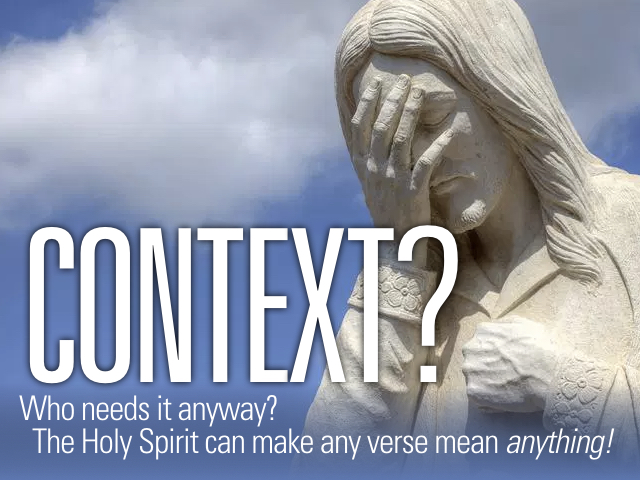
Custom during the Lenten season, because it’s a time to reflect on Jesus’s death and self-sacrifice, is the Lenten fast, between Ash Wednesday and Easter. (And take Sundays off. Not everybody remembers Sundays are feast days, and we’re not meant to fast on feast days.) But it’s not a total 40-day fast; many who practice Lent simply go without meat and alcohol… plus one other thing.
And for many, if not most, they only go without the one other thing. Hence all the discussions before Ash Wednesday of “What’re you giving up for Lent?” Then, during the Lenten season, “How’re you doing?”—a question which typically dies off after the people who usually ask this question, fail in their own fasts.
Lent isn’t the only time Christians “fast” from only one thing. I’ve done it. My church would call for a weeklong fast, or a 14-day fast, or a 21-day fast, and I really didn’t feel like starving myself just because Pastor had a spiritual bug up his heiney. (And as you can tell, my own attitude at the time sucked.) So like many a Christian, I did the laziest bare minimum: I gave up only one thing. Something inconvenient, yet kinda easy. Like coffee. Now, if you know how much coffee I consume, you might think this was an act of heroic self-control on my part… but nah, it’s really not. I’m not addicted to caffeine. (I drink it for the flavor, and switch to decaf after lunch.) Giving up caffeine was just as easy.
As was sugar—which was something I actually stuck with after the fast was over. But giving up bagels was unexpectedly hard; guess I’m more addicted to them than I realized. Meh; enough about me.
I’ve been asked whether giving up only one thing as a “fast” actually counts as a fast. It can. Two thoughts though.
First of all I gotta ask them whether they’re honestly fasting for the right reasons. You do realize God never obligates us to fast. Yes, there are those numbnuts who insist he absolutely did call for a fast in Isaiah 58.6, but obviously they never read the context: The LORD’s using fasting as a metaphor for justice and freedom. Has nothing to do with going hungry for God, nor giving up a particular item.
So we’re not disobeying God when we skip a fast, break a fast, “cheat” on a fast, or diet instead of fasting. True, our churches might want us to fast, and legalistic churches will certainly require it. But unless you swore to God you’d fast along with ’em, you’re not sinning if you don’t fast. (And of course lying about it, or pretending you’re fasting when you’re not, is always wrong.)
Likewise I don’t want people to think the purpose of fasting is to earn karmic points with God. God never “owes us one” for fasting, nor anything we do. Worship and obedience is our duty, Lk 17.10 not a favor we do for him that’s gonna earn us jewels in our heavenly crowns. What, did you not get enough participation trophies in youth soccer?
Fasting is simply a practice which Christians have found helps us focus better on God in prayer, and helps us develop self-control. That’s the only reason we do it. If anyone tells you there are other spiritual abilities, benefits, or rewards for fasting, I advise you to be wary. Too many of ’em are trying to get you to follow them more so than God.
Second I don’t assume Christians are lazy when they want a bare-minimum “fast.” Yeah, sometimes it’s totally that; been there done that myself. But more often it’s because fasting is hardcore. And admittedly, we’re weak. Going without food for a whole day? We’ll crack by 10AM! We’ll walk into the break room, someone will have brought doughnuts, and we’ll hold out maybe an hour. But knowing ourselves, less. A warm Krispy Kreme doughnut is a powerful thing.
I don’t say this to condemn weak Christians. Every last one of us was a weak Christian at one point. (Me, many points.) So if you’re still weak, I’m here to help, not judge or mock. You gotta build self-control. Fasting is the fastest way to do it, but it’s wise to start small and work your way up. Y’don’t just tackle the very hardest practices, and presume you’ll be a natural ’cause now you have Holy Spirit power. Fast small before you fast big.
So, the very least we can fast… is that one single thing.
And this is a very common Christian practice. Some Christians do it every Lent. I’m not saying you need to observe Lent. Start even smaller. Abstain for a week. See how you do. If you fail—and you may—try again.







